This Focused Meeting on Molecular Biology and Pathogenesis of Avian Viruses took place at Charles Darwin House, London, UK.
Avian viruses have contributed immensely to our understanding of not only virology but important aspects of biology including cancer, immunology and cell biology.
In recent years, the role of birds as sources of important zoonotic viruses (avian influenza, West Nile, Japanese encephalitis, the equine encephalitis viruses) has become apparent. Poultry (reaching a global annual population of around 55 billion chickens) are also increasingly important as a universally acceptable source of protein for a growing world population. With a plethora of viruses, with frequent occurrence of emergence of novel pathogens and continuing diversity, the vaccination strategies widely used by the industry are being challenged.
With significant growth of the poultry population happening in Asia and South America, where emergence and re-emergence of avian viral pathogens is often observed, this timely meeting focusing on avian viruses will bring together the international scientific community to assess the extent of the problem and help find solutions. Those working on key, often novel, aspects of the molecular biology and pathogenesis of a range of important avian viruses will join others studying host-virus interactions using genetics, genomics, transcriptomics and proteomics, especially in the study of the innate (particularly interferon) responses.
Topics will include:
Organisers: Dr Mike Skinner (Imperial College London, UK) and Professor Venugopal Nair (The Pirbright Institute, UK).
Approved by the Royal Society of Biology for purposes of CPD, this event may be counted as 42 CPD credits.
If you have any questions please email [email protected]
Follow us on Twitter @MicrobioSoc
Updates on Molecular Biology and Pathogenesis of Avian Viruses can be found using the hashtag: #Avian16
Image: monticelllo/Thinkstock.
Abstract submission is closed.
Poster abstracts for this meeting can be downloaded below. However, a printed poster abstract book will also be available to collect from the registration desk onsite. At the meeting, posters will be presented in the breakout area.
For tips on how to best prepare a poster or oral presentation please click on the following links.
The final decision is at the reviewers' discretion.
The Journal of General Virology 'Best Scientific Poster Prize' will be awarded to one scientific poster at this Focused Meeting. The prize will be awarded to a poster that presents particularly compelling or novel research in the journal's subject field. It will be presented at the meeting by Journal of General Virology Editorial Board Member Dr Mike Skinner, with the winner receiving a cash prize and certificate. All posters displayed at the meeting are automatically entered for the prize.
Registration is now closed.

Please note: online registration closed at midday on Friday 23 September 2016. After this date, registrations will only be accepted onsite.
Should you book for supper, you will enjoy a fantastic three-course meal with colleagues and friends alike. Don’t miss the opportunity to network with influential professionals in your field.
The Society offers funds via the Conference Grant schemes to support the attendance of members at all stages of their careers:
The closing date for applications is Monday 4 July 2016. See the relevant pages for further details including application forms and full terms and conditions.
Book before Monday 1 August to take advantage of the early bird rate.
|
Type |
Early bird rate |
Rate after 1 August 2016 |
|
Full member |
£200 |
£220 |
|
Full member including conference supper |
£230 |
£250 |
|
Non-member |
£300 |
£320 |
|
Non-member including conference supper |
£330 |
£350 |
|
Student member |
£150 |
£170 |
|
Student member including conference supper |
£180 |
£200 |
Upon registration you should receive an automated confirmation email. Please contact [email protected] if after 24 hours this has not been received.
If you need a letter of invitation for a visa application, we will be happy to supply this after we have received full payment.
To find out if you need a visa to visit the UK, please visit the UK visa and immigration website.
Please note that all conference delegates are responsible for their own travel and visa arrangements; the Microbiology Society will not take any responsibility for travel or visa problems.
All registration fees must be paid in full BEFORE arrival at the conference. Any outstanding registration fees must be paid before admittance will be granted to the conference.
Refunds will not be provided.
Substitutions of attendees can be made at any time by contacting [email protected].
International speakers were invited to present their work in this field of microbiology. Each person below is highly recognised.
 Wendy Barclay
Wendy Barclay
After graduating from the University of Cambridge, Wendy’s postgraduate study at the Common Cold Unit in Salisbury involved infecting human volunteers with cold viruses to understand why people get colds year after year. In two postdoctoral appointments, at the University of Reading and then Mount Sinai Medical Centre in New York, Wendy learned the molecular virology skills that would form the technological basis of her research career. Returning to Reading in 1995, she set up her research group to study influenza viruses. In May 2007 she took up a Chair in Influenza Virology at Imperial College London. She is particularly interested in the mechanism by which viruses cross from animal sources into humans to cause new pandemics. She sits on several advisory boards, offering advice about respiratory virus outbreaks and to the Science Media Centre, whose aim is to improve the relationship between scientists and the media.
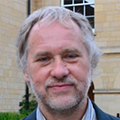 Paul Britton
Paul Britton
Paul is an Honorary Fellow at The Pirbright Institute. Paul’s major research interests involved the molecular characterisation of the avian coronavirus infectious bronchitis virus. His group developed the first reverse genetics system for IBV and has been using this system to identify genes that are involved in loss of pathogenicity and for the development of rationally designed attenuated vaccines. The group has shown that it is possible exchange S genes and to produce recombinant viruses that can be grown in Vero cells.
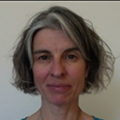 Laura Delgui
Laura Delgui
Laura did her PhD work at the Molecular biology of birnavirus laboratory, headed by Dr José F. Rodríguez, at the National Centre for Biotechnology in Madrid (Spain). In 2009, she moved back to Argentina to perform a post-doctoral training in the cellular biology of birnaviruses with a fellowship from Consejo Nacional de Investigaciones Científicas y Técnicas at the Instituto de Histología y Embriología Mendoza (IHEM-CONICET). Currently, Laura is a CONICET Assistant Researcher at the IHEM where she continues working on the cellular biology of birnaviruses. Laura is specially focused on deepening the understanding about the replication mechanisms of members of this atypical dsRNA virus family, which exhibit a radically different behaviour with respect to well-characterised prototypical dsRNA viruses.
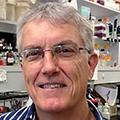 Roy Duncan
Roy Duncan
Roy is a Dalhousie University Research Professor and Killam Chair in Virology in the Departments of Microbiology and Immunology, Biochemistry and Molecular Biology, and Pediatrics at Dalhousie University in Halifax, Nova Scotia, Canada. His research group discovered and pioneered the study of a new family of virus-encoded membrane fusion proteins, the fusion-associated small transmembrane (FAST) proteins. Roy’s research on avian reoviruses and other fusogenic reoviruses, and the FAST proteins they encode, rewrote the phylogeny and taxonomy of reoviruses, established FAST proteins as virulence factor of the fusogenic reoviruses, and defined a new mechanism of protein-mediated membrane fusion. Recent studies also revealed FAST proteins usurp exosome biogenesis pathways to generate highly infectious, vesicle encapsulated avian reovirus particles. These studies have transformed our understanding of how nonenveloped viruses can be transmitted, and this knowledge is being applied to improve oncolytic virotherapy.
 Nicolas Eterradossi
Nicolas Eterradossi
Nicolas graduated as a doctor in Veterinary Medicine from Nantes (France), holds a PhD from Rennes University (France) and was trained in Fundamental Virology at the Institut Pasteur (Paris, France). He started his career in avian virology in 1989. He is currently assistant head at the French Agency for Food, Environmental and Occupational Health & Safety (Anses), Ploufragan-Plouzané Laboratory, and head of the Avian and Rabbit Virology Immunology and Parasitology (VIPAC) Unit in Anses, which holds the mandates of National Reference Laboratory for Avian Influenza and Newcastle Disease. Nicolas currently serves as an OIE expert for infectious bursal disease and turkey rhinotracheitis and serves as Vice-President for the World Veterinary Poultry Association and European College of Poultry Veterinary Science. Research activities are in avian virology related with birna-, metapneumo-, corona- and more recently influenza viruses.
 Mike Francis
Mike Francis
Mike has over 40 years of experience in vaccine research and development. He obtained his PhD from the University of Surrey and worked at Wellcome Biotechnology, where he conducted research on novel vaccines for both human and veterinary diseases. He progressed to become Executive Director of Research and Development at MSD Animal Health and took on responsibility for a broad range of veterinary vaccine projects against viral, bacterial and parasitic diseases, leading to the development of successful commercial vaccines for all major veterinary species. Since leaving MSD Michael has set up his own consultancy business called BioVacc Consulting Ltd in order to pass on his knowledge and experience to others. He was elected as a Fellow of the Royal Society of Biology for his work on vaccines and was awarded an Honorary Associateship of the Royal College of Veterinary Surgeons in recognition of his exceptional contribution to veterinary science.
 Steve Goodbourn
Steve Goodbourn
Steve is interested in the means by which viruses evade the body’s system of innate defence and how this impacts on the virus’ host range and pathogenicity. He is especially interested in the interferon system, having worked on this since 1983, first as a post-doc in Harvard and then as a PI at the ICRF and more recently at St. George’s. Steve’s lab has two main focuses of research: (i) How does the interferon system of chickens differ from that of mammals and how can the knowledge of this be used to enhance our ability to identify and propagate avian viruses? (ii) How are specific viruses (for example, paramyxoviruses) detected by the host and what steps do these viruses take to prevent overstimulation of the host recognition systems?
 Benedikt Kaufer
Benedikt Kaufer
Benedikt is a Professor of molecular tumour virology (2011–present) at the Institute for Virology, Freie Universität Berlin. He obtained his Bachelor of Science at the Technical University Munich, Germany, in 2005. Subsequently, he did his PhD at the Department of Microbiology and Immunology at Cornell University, USA. In 2010 he established his own laboratory as a group leader at the Institute for Virology of the Freie Universität Berlin. In 2011, he was appointed as an assistant professor for molecular tumour virology. His main focus is on herpesvirus pathogenesis and virus integration. For his work, he received a number of awards including the Robert Koch Post-doctoral Prize and the Young Investigator Award of the German veterinary society (DVG). His research has been funded by grants from the German Research Foundation (DFG), ERA-Net grants, an ERC starting grant and industry sponsors.
 Helena Maier
Helena Maier
After completion of a BSc in Virology at University of Warwick, Helena moved to the Sir William Dunn School of Pathology, University of Oxford, to study for a DPhil with Prof George G. Brownlee. During her DPhil she studied the function and cellular transport of the influenza A virus polymerase subunit, polymerase acidic. Following this, Helena started a postdoctoral researcher position at the Institute for Animal Health, now The Pirbright Institute, on a project with Prof Paul Britton studying interactions of avian coronavirus, infectious bronchitis virus, with the cellular autophagy pathway and implications for virus induced rearrangement of cellular membranes. Helena has recently been appointed as Fellow in Nidovirus-Cell Interactions at The Pirbright Institute and is establishing a research group with a focus on continuing her interests in coronavirus induced membrane rearrangements, as well as other aspects of molecular interactions between coronaviruses and the host cell.
 Venugopal Nair
Venugopal Nair
Venugopal is the Head of the Avian Viral Diseases programme overseeing the research on avian diseases at The Pirbright Institute. Venugopal also heads the Avian Oncogenic Virus Group & the OIE Reference Laboratory on Marek’s disease. He has a long-standing experience in the field of avian viral diseases, and is the Associate Editor of the major reference book, Diseases of Poultry. In addition to the position at The Pirbright Institute, Venugopal holds positions as Jenner Institute Investigator (Oxford), Visiting Professor of Avian Virology (Zoology, Oxford), Honorary Visiting Professor (Imperial College London), Honorary Professor (University of Liverpool), and Member of the Oxford University Bioscience DTP. In recognition of his overall contribution to science, he was awarded an OBE in the Queen’s New Year’s Honours list 2015. Venugopal’s group has made major contributions to our understanding of avian viral biology and pathogenesis, including reverse genetics for avian viruses and vaccine vectors.
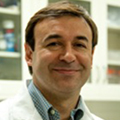 Daniel Perez
Daniel Perez
Daniel is Georgia Research Alliance Distinguished Investigator and Caswell S. Eidson Chair in Poultry Medicine in the Department of Population Health, Poultry Diagnostic and Research Center at the University of Georgia in Athens, GA. Daniel has more than 20 years of experience spanning numerous areas of influenza research, including molecular biology, viral pathogenicity, vaccine development, viral evolution, and viral transmission, especially as it relates to the molecular determinants of animal to human transmission and adaptation. Daniel’s lab is an integral part of the Center for Research on Influenza Pathogenesis (CRIP), one of five NIAID-sponsored Centers of Excellence for Influenza Research and Surveillance. Daniel has devoted significant effort in the development of alternative live attenuated influenza virus vaccines with the potential to protect poultry, livestock and human against influenza virus infections.
 José Rodriguez
José Rodriguez
José earned his MS in Biological Sciences in 1977, and PhD in 1983 from the Complutense University of Madrid (Spain). He did his postdoctoral research at New York State University (USA) (1983-87), University of Cambridge (UK) (1988-89) and University of Oxford (UK) (1990-91), working on the molecular biology of poxviruses and the development of poxvirus-based recombinant vaccines. In 1991 he joined the Molecular Biology Centre in Madrid (Spain) as a senior staff scientist working on the molecular biology of the African swine fever virus. In 1995 he moved to the Spanish National Biotechnology Centre in Madrid (Spain) where he leads a research team focused on the molecular and structural biology of birnaviruses. His current research is mainly devoted to understanding the interaction of infectious bursal disease virus (IBDV), an avian pathogen, with host cells, and to unraveling the molecular basis underlying IBDV virulence.
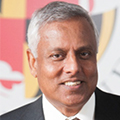 Siba Samal
Siba Samal
Siba is a Professor and Chairman of the Department Of Veterinary Medicine at the University of Maryland, where he has been since 1988. He is currently also serving as Associate Dean of the Virginia- Maryland Regional College of Veterinary Medicine. He was a visiting scientist at the National Institutes of Health. He received his MS and PhD from Texas A&M University and did his postdoctoral training at Baylor School of Medicine and at the Plum Island Animal Disease Center. He is a diplomate of the American College of Veterinary Microbiologists (ACVM) and an elected Fellow of the American Academy of Microbiology.
Siba’s research interests centre on understanding the biology of animal paramyxoviruses. The complete genome sequences of many important animal paramyxoviruses were first determined in his laboratory. His group also developed reverse genetics methods for several of these animal paramxyoviruses. His research on Newcastle disease virus (NDV) has helped establish an understanding of the molecular basis of pathogenesis, engineering improved vaccines, and developing NDV as a vaccine vector against other pathogens.
Siba has published more than 160 papers in refereed journals. He edited The Biology of Paramyxoviruses, and has authored 15 book chapters. He has served as major advisor for 29 graduate students. He has received several awards, including the 2014 Distinguished Veterinary Microbiologist Award given by the ACVM, the 2015 Phibro Animal Health award given by AAAP, and the 2015 WVPA-Merial Award for Innovation in Vaccination given by WVPA.
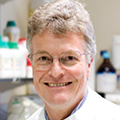 Mike Skinner
Mike Skinner
The conference was held at Charles Darwin House, London, UK.
Charles Darwin House
12 Roger Street
London
WC1N 2JU
The nearest rail stations are:
The nearest underground stations are:
The following bus routes serve Theobalds Road:
The following bus routes serve Grays Inn Road:
You are advised to use public transport where possible, as there is a limited amount of on-street metered parking space available on Roger Street and North Mews. The nearest car park facilities are London Saffron Hill, EC1N 8XA and 12 Farringdon Road, EC1M 3JB.
Accommodation is not included in the registration rate for this meeting. Please see below for some local options.
Goodenough Club (0.2 miles, approximately 5 minute walk)
London Holborn Premier Inn (0.3 miles, approximately 7 minute walk)
President Hotel London (0.5 miles, approximately 10 minute walk)
Hotel Russell (0.5 miles, approximately 10 minute walk)
Grange Holborn Hotel (0.5 miles, approximately 10 minute walk)
Holiday Inn London – Bloomsbury (0.6 miles, approximately 11 minute walk)
YHA London St Pancras (0.8 miles, approximately 16 minute walk)
The Society operates a series of Focused Meetings that take place over one to three days. The Focused Meetings concentrate on one specific area of microbiology and incorporate presentations from leading scientists and provide opportunities for those new to the field to present their research. The meetings attract between 50 and 200 people from a specific field of microbiology, allowing organisations to meet influential researchers and scientists.
A 3x2-metre stand space located in the main exhibition area is available, which is also the location of the:
The programme book is distributed to all delegates and contains information on the meeting. Opportunities exist to purchase full colour adverts within the programme book.
Literature will be displayed in the exhibition area and on the registration desk. Sponsors will be able to display A4 or A5 literature to all delegates attending the conference.
The booking form is available to download below. Please note, confirmation will be sent from the Conferences and Events Team.
Please send the completed booking form to: [email protected]